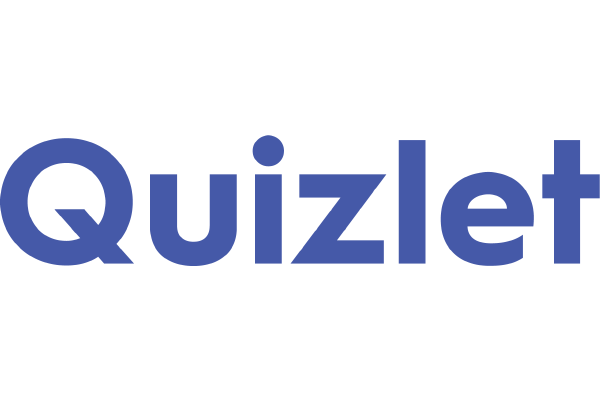How MFL teachers can make the most of Quizlet

Quizlet is an established tool in the modern foreign languages teacher’s toolbox. It’s so easy to use that pupils can get up and go straight away. The question is, are we making the most of it?
Many people are keen to be able to speak another language. We all know why: it opens doors, takes you to places that you’ve never been, and lets you be someone else. It expands your horizons and your mind; it’s the ultimate voyage of discovery.
The trouble is, not everyone wants to learn another language. And we all know why. At first, it’s fun - new sounds, eccentric word order, a quick hit of basic vocabulary, the glow of first-time achievement. But modern languages, more than any other subject, present you with a mountain to climb. It’s the sheer quantity of information - there’s just so much of it and every detail counts. This is where Quizlet comes in.
The genius of Quizlet is that it rekindles that initial enthusiasm and helps sustain it for longer. You’re working, but you’re playing - learning, but having fun.
Quizlet is a one-to-one learning platform, using tried-and-trusted, mix-and-match spaced-repetition techniques to square new information away in your brain. But it’s remarkably responsive. Like a good teacher, Quizlet has time for you. It’s vigilant, spotting your mistakes (missing punctuation, vital end letters) and adapting to your needs (focusing on next steps). It encourages progress (“keep going”) and rewards success (“you aced that!”).
It deploys both formative and summative assessment, and when that riot of smiley faces explodes across the screen when you’ve hit 100 per cent on an activity, there’s no doubt it feels good. And more like a best friend than a teacher, Quizlet always wants to play.
Two gaming functions, Match (a race against time) and Gravity (saving the planet from extinction), are great motivators, making light work of drilling and repetition, and allowing for full-participation group vocabulary learning in a classroom environment. The addictive element compels pupils to keep going, though teachers may need to watch out for those who only want to use the gaming modes to beat a high score and aren’t as focused on the actual learning. “Learn” and “Test” modes guard against this by mixing up skills (write, multiple choice, true or false), with the latter enabling teachers to measure individuals’ progress across a lesson. Can they make adjective and nouns agree independently? Can they distinguish between subject and object pronouns, direct and indirect? Can they conjugate reflexive verbs or select the correct form of the past tense?
Successful language learning depends on regular independent practice - cramming doesn’t work. Vocabulary needs to be absorbed and assimilated a year before the exam, and Quizlet has a good chance of making the language teacher’s idealistic dream of “10 minutes a day” come true.
Like any tool, Quizlet is only as good as the hand that wields it. There’s plenty for the teacher to do and scope to get creative. Teachers like Quizlet because they can quickly create their own resources or “study sets”, and tailor them to individuals and ability groups. They like it because they can quickly access resources created by other teachers. In both cases, step one is to check that content has been inputted correctly. If you type “genuo” instead of “genou” (for the French “knee”), then “genuo” is what Quizlet will require your pupils to learn. For some, this is merely inconvenient, but for weaker pupils, it’s a minor catastrophe, since unlearning over-learned mistakes is more difficult than learning in the first place. Quality control is critical.
Collaborative learning
The thing I like best about Quizlet is getting pupils involved in collaborative and higher-order learning. They can create their own study sets for revision, which challenges them to reflect on their own progress and goals, or they can work together to produce materials for each other, which challenges them to think analytically on behalf of others. A simple way to personalise learning is by marking tricky words with a star, then practising only starred words until the list of unknowns dwindles to nothing.
What pupils like best is Quizlet Live, which tests hard subject knowledge while building the soft skills of communication and collaboration. The teacher assigns a topic - parts of the body, places in a town, daily routine, all those staples of the language-learning journey - and the app assigns a join code and randomly allocates pupils to teams. Teams race against each other, with the teacher’s screen ratcheting up the excitement by displaying an interactive leaderboard. Everyone gets the same question, but not the same set of answers, which means every team member has to focus and communicate for their team to win.
Speed isn’t everything. An incorrect answer entails starting over, which apart from diminishing your chances of winning, is also a bit of a bore. It’s not exactly “slow and steady wins the race”, but the stronger the teamwork, the faster you’ll go, and the more embedded all that linguistic information is likely to become. Quizlet Live can be extended to combine group and knockout stages, like a World Cup, or run as a league, awarding points in line with results.
Quizlet works across all ages and stages. It injects excitement into the doldrums of vocabulary acquisition, and accuracy into listening, reading and writing - attention to detail that in languages is fundamental to success. It makes pupils want to learn and the competitive element builds stamina by keeping energy levels high.
The key thing for MFL teachers to bear in mind is that Quizlet is more than merely a drill master. Used creatively, it will get pupils asking and answering questions, thinking, communicating and collaborating - and not just in English.
Heather Martin is a MFL teacher currently based at the Graduate Center, City University of New York
